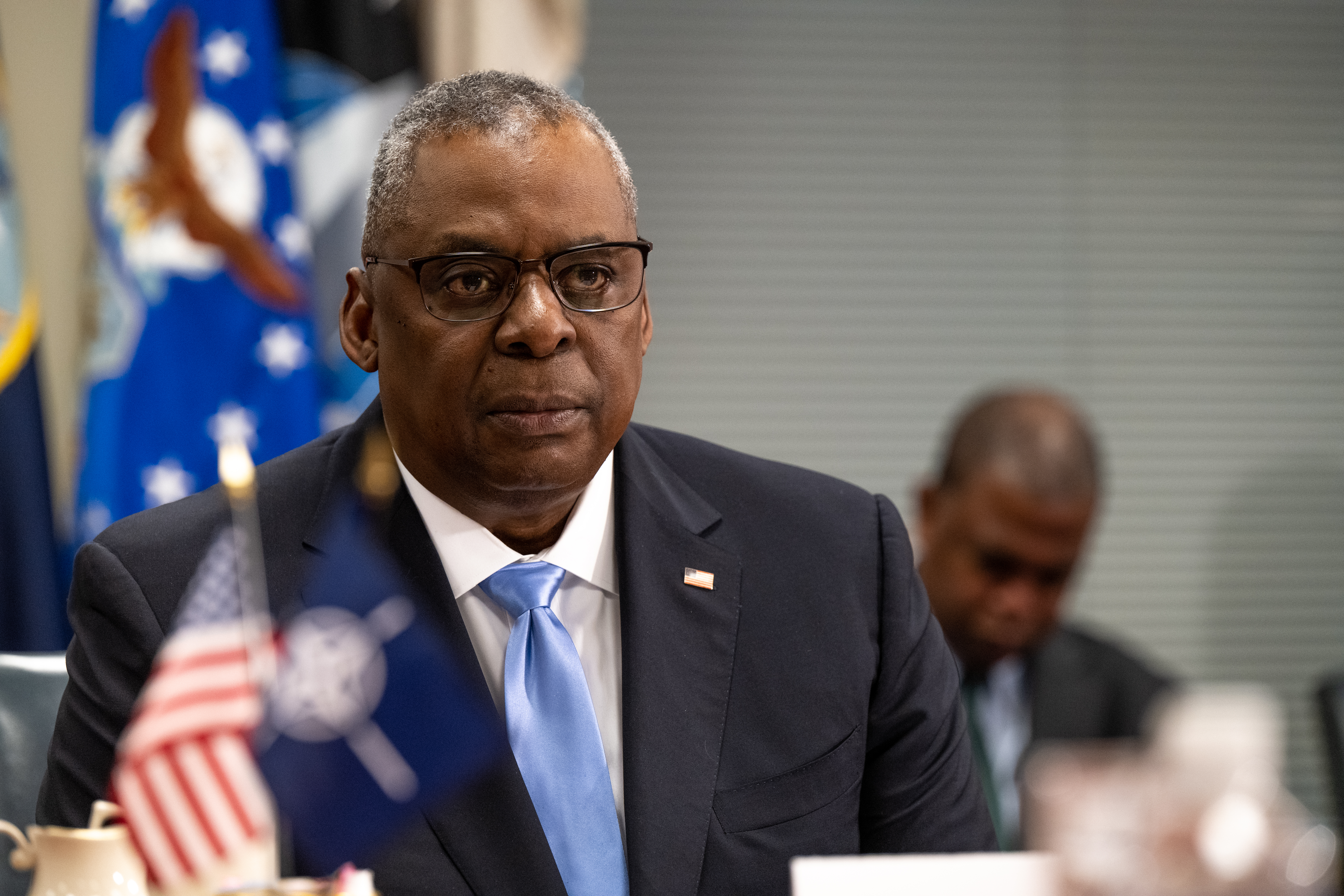Beijing has rebuffed Secretary of Defense Lloyd J. Austin III’s latest attempt to talk with his Chinese counterpart following the U.S. downing of a Chinese spy balloon, the Pentagon said Feb. 8.
The balloon’s intrusion over the continental U.S., and the failure to establish a dialogue between senior defense officials on both sides, has complicated the White House’s effort to avoid a further escalation of tensions.
“Secretary Austin, his office, did reach out to request a phone call after the balloon was taken down,” Pentagon press secretary Air Force Brig. Gen. Patrick S. Ryder told reporters.
“The PRC declined to take that call,” he added, referring to the People’s Republic of China and defense minister Wei Fenghe. “We will remain open to communication. We do not seek conflict.”
China continues to insist the balloon was not a spy platform, but instead a rogue weather balloon, and should not be handled as a military matter. The head of China’s meteorological agency has been fired, according to news reports.
U.S. officials say China has flown at least four previous balloons into American airspace and Washington has clear intelligence the balloon was being used to surveil sensitive U.S. sites, including Malmstrom Air Force Base’s nuclear international continental ballistic missile silos in Montana.
The balloon’s flight derailed a planned trip to China by Secretary of State Antony Blinken—a setback to the Biden administration’s efforts to maintain open communication with China. In November, President Biden spoke of trying to put “guardrails” on the relationship after meeting with Chinese leader Xi Jinping, and Secretary Austin spoke with Wei in November and expressed similar views.
But this is not the first time that the Chinese have rebuffed offers from the Pentagon to talk. Air and Space Forces Magazine reported in January that Austin sought to talk with his Chinese counterpart after a Chinese J-11 fighter intercepted an Air Force RC-135 Rivet Joint in international airspace near China.
In that incident, the Chinese plane flew within 20 feet of the U.S. surveillance plane over the South China Sea. Ryder said Feb. 8 that the RC-135 mission was unrelated to any intelligence gathering out of China’s balloon program.
In a statement released Feb. 7, Ryder said Austin requested a call with his Chinese counterpart immediately an F-22 Raptor from 1st Fighter Wing shot down the balloon Feb. 4 off the coast of South Carolina.
“Lines between our militaries are particularly important in moments like this,” Ryder said. “Unfortunately, the PRC has declined our request. Our commitment to open lines of communication will continue.”
The Department of Defense did not immediately respond when asked by Air & Space Forces Magazine if Austin’s call was specifically about the balloon incident or was an attempt to avoid a heightening of military tensions.
“I don’t think this is particularly surprising that they’re not doing it in this case,” said Zack Cooper, a senior fellow and China expert at the American Enterprise Institute. “But it does raise a bigger issue, which is that the administration has been talking a lot about putting guardrails on the relationship. It just doesn’t seem like the Chinese are willing to do that in a serious way at the moment.
“I think the Chinese tend to take a pretty competitive approach to crisis management mechanisms, which is to say that when they think it would be helpful to them, they will answer the phone,” Cooper added.
After Ryder’s comments, the Chinese Embassy in Washington reiterated the claims that the balloon was for civilian purposes to Air & Space Forces Magazine and said China communicated its views on the incident to the U.S.
On Feb. 7, the Charge d’Affaires of the Chinese Embassy made “stern representations with senior officials of the U.S. Department of State and White House National Security Council on the U.S. attack on a Chinese unmanned civilian airship by force,” according to the embassy.
U.S. officials, however, continue to insist their actions were lawful and necessary.
“The fact is China engaged in this irresponsible action: a violation of our sovereignty and territorial integrity and internet international law,” Blinken said. “We continue to look to China to act responsibly as well as to help us in managing this relationship responsibly.”
Experts say immediate prospects for the beginning a serious security dialogue are dim, especially following the postponement of Blinken’s visit to China and each side’s recriminations over the balloon incident.
“We’re in an uncertain place,” said Bonnie Glaser, a China expert and managing director of the German Marshall Fund’s Indo-Pacific program. “The Chinese side should agree to improve crisis communication mechanisms, and their system makes it very, very difficult to do so. And we should keep trying. But I just think it’s going to be very, very difficult to achieve.”
